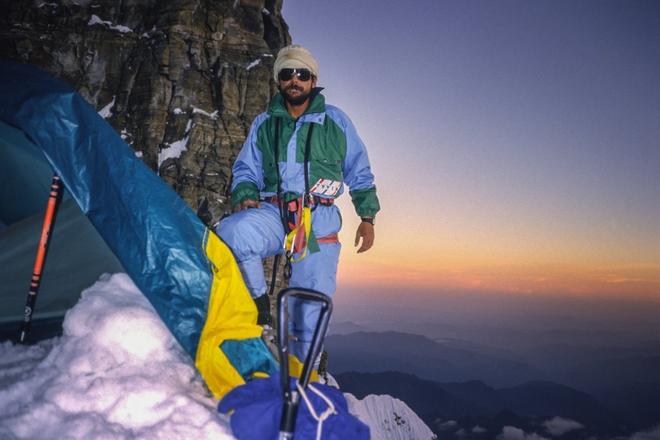“The Himalayas and mountains taught me humility, which for me means an acknowledgement of, and respect for, universally valid principles such as gravity and balance,” Zoltán Demján says in the opening scene of the film ‘Dhaulagiri Is My Everest’.
As the world-renowned Slovak climber cooks his favourite Nepalese meal, dal bhat, on a wood range in the cosy, warm, kitchen, at his weekend cottage in Zázrivá, he talks about his expeditions in the snow-covered Himalayas and what he learned from them.
Demján climbed Alpine style - which famous Italian mountaineer Reinhold Messner described as “climbing by fair means”, i.e. carrying all food, shelter and equipment as you climb, and without fixed ropes, supplemental oxygen, nor mountain guides.
Read in this story
What a transcendental experience did Zoltán Demján experienced during descent of Dhaulagiri
What he thinks about his achievements in the Himalayas
What were his switches in career
In the one-hour documentary film by award-winning Slovak documentary filmmaker Pavol Barabáš, which premiered in mid-January, having already won Grand Prix as well as the audience award at the Poprad International Festival of Mountain Films in October 2021, Demján explains what is so important to him about the style.
“The Alpine style is an amazing school for clean living,” says Demján, 66.
Nothing is a coincidence
Demján has climbed three of what are known in the climbing world as ‘eight-thousanders’ i.e. peaks over 8,000 metres: Lhotse Shar (8,383 m) in 1984, Mt. Everest (8,848 m) in the same year, and Dhaulagiri (8,167 m) in 1988. He scaled all three as first ascents and without the aid of supplementary oxygen.



 Zoltán Demján while climbing Dhaulagiri in 1988. (source: Courtesy of Zoltán Demján)
Zoltán Demján while climbing Dhaulagiri in 1988. (source: Courtesy of Zoltán Demján)